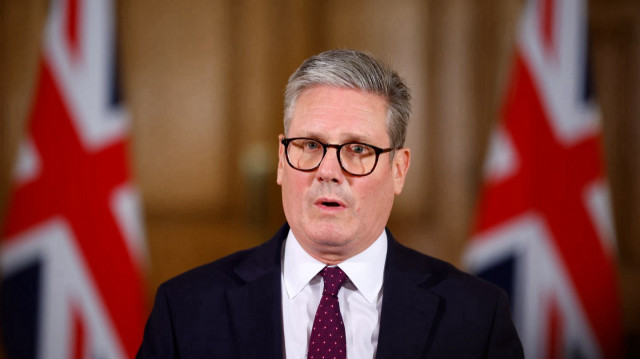
The decision last week by British Prime Minister Keir Starmer to tighten the UK's immigration regime is an attempt to clean up another mess Labour inherited from the Conservatives' largely wasted 2010–2024 government
The decision last week by British Prime Minister Keir Starmer to announce a headline-grabbing tightening of the UK's immigration regime – and some of the tough talk in which he couched that announcement – is not simply a knee-jerk reaction to the stunning successes achieved at recent local elections by Nigel Farage's populist radical right party, Reform UK.
It is also an attempt – albeit not necessarily a sensible economic or political move – to clean up another mess Labour inherited from the Conservatives' largely wasted 2010–2024 government.
When, in 2016, British voters decided that the country should leave the EU, many did so because they were promised it would allow the UK to "take back control" of its borders. They assumed, not unreasonably, that the end of free movement for EU citizens would mean a significant reduction in immigration – something they had long demanded, especially in the wake of a huge and utterly unanticipated influx of people from Poland and other eastern European countries that joined the bloc in 2004. As it turned out, however, the very same Conservative politician who had done so much to help "Get Brexit Done" – Boris Johnson – then did the very opposite of what most voters wanted from it.
- No migration vs. labor market shortages
Worried that the end of free movement would lead to labor market shortages in a country that has traditionally relied on migrants to do the jobs that Brits cannot or will not do, his government introduced a remarkably liberal immigration regime. The result? Firstly, a massive increase, rather than a decrease, in the number of people coming (perfectly legally) to study and work in the UK – the only difference being that, instead of coming from Europe, they were coming mainly from South Asia and Africa.
Secondly, and hardly surprisingly, anger on the part of Brits who had been sold a lie – anger that was rapidly compounded by growing concern (whipped up by populist politicians like Farage and the influential right-wing print media) about the growing number of people from other developing countries coming across the Channel from France in small boats in order to claim asylum – at huge cost to the taxpayer.
In a vain attempt to assuage that anger and concern, the Conservatives had belatedly introduced stricter criteria for those hoping to obtain visas to live and work in the UK, as well as passing legislation to declare asylum seekers arriving via unauthorized routes "illegals" and promising to deport them to Rwanda in west Africa – a fate that would supposedly deter people from coming and so "Stop the Boats." Despite the millions of pounds spent on the Rwanda scheme, no deportation flights ever took off and it was abandoned by the incoming Labour government. Instead, it declared that it would seek to "Smash the Gangs" responsible for trafficking people across the Channel. That approach, which involves greater cooperation with French and other European governments, will take time to work – if it works at all.
- British public thinks legal migration is also high
In the meantime, the Starmer government is still left with a level of legal migration that, according to the public (and much to the confected horror of the country's right-wing politicians and news outlets), is still far too high.
So the measures were announced last week: restricting skilled work visas to graduate jobs, ending easier entry for people working in social care, upping English language requirements, reducing the time overseas students are allowed to work freely in the UK after graduation, and insisting that migrants will need to spend 10, not five, years before they can apply for citizenship.
Hence, too, Starmer's harsh rhetoric – his claim that what he called the Conservatives' "failed experiment in open borders" – was a "squalid chapter" in the nation's history that had caused "incalculable" damage and risked making us "an island of strangers."
All this was economic, historical, and sociological nonsense, according to most experts. And it sparked moral and political outrage from the country's cultural liberal voters. Equally predictably, however, its cultural conservatives dismissed the hardline language as nothing more than a transparent attempt to disguise the fact that the measures themselves didn't go far enough in bringing down legal migration and also would have zero impact on illegal entry.
Even if the critics are wrong and the measures do bring about a significant reduction, who knows whether any drop will serve to reassure those voters who are especially angry about immigration or simply raise the salience of the issue – much to the delight of Farage and co. It also risks further alienating the government's more progressive supporters, many of whom are already upset by its proposed cuts to welfare.
The biggest risk of all, however, is that Starmer simply ends up joining a long list of British prime ministers who, on immigration (as on much else), have overpromised but underdelivered.
* Opinions expressed in this article are the author's own and do not necessarily reflect the editorial policy of Anadolu.







